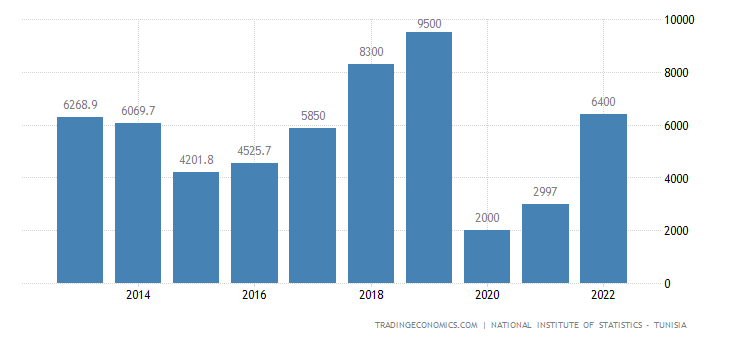Tunis, June 15, 2023 - Tunisia, a country known for its historic heritage and stunning landscapes, is witnessing a promising revival in its tourism industry, providing a glimmer of hope amid its ongoing economic crisis.

In this article, we delve into the factors contributing to this resurgence and explore the significance of tourism as a lifeline for Tunisia's struggling economy. To travel to Tunisia, you will need to obtain a Tunisian visa. The specific type of visa you require will depend on factors such as your nationality, the purpose of your visit, and the duration of your stay.
Tunisia, like many nations, suffered a sharp decline in tourism during the COVID-19 pandemic. Before the crisis, tourism accounted for approximately 7% of the country's GDP. However, authorities are now optimistic about the sector's resurgence, with expected tourist numbers in 2023 nearing pre-pandemic levels.
Lotfi Mani, an official from Tunisia's Ministry of Tourism, anticipates around 8.5 million tourists this year, which is 90% of the 9.4 million visitors recorded in 2019, the last year before the pandemic. This represents a substantial increase from the 6.4 million tourists in the previous year.

Tourism revenue in Tunisia, as of the end of May, reached approximately 1.7 billion dinars (equivalent to $550 million), reflecting a remarkable 57% increase compared to the same period in the previous year. These positive indicators suggest a promising tourism season for the country.
While a strong tourism season is indeed beneficial, it can only partially address Tunisia's economic woes. The nation faces a significant fiscal deficit, which has led to shortages of essential goods like food and medicine. Additionally, Tunisia's foreign currency reserves have dwindled, and its sovereign debt has been downgraded to junk status by credit ratings agency Fitch.
Tunisia's tourism industry predominantly revolves around beach resorts and short-stop cruise ships, despite its rich historical and cultural heritage. This focus on coastal tourism has been instrumental in attracting tourists. Visitors like Anna Glan from Poland appreciate the country's natural beauty and hospitality.
For businesses in tourist hotspots like Sidi Bou Said, the return of tourists is a much-needed boost, despite the broader economic challenges. Tawfik el-Hakil, who runs a traditional donut shop in Sidi Bou Said, reports that they are eagerly awaiting a prosperous tourism season, with promising signs such as full hotel reservations and cruise ship arrivals.
Tunisia already experienced a significant rebound in foreign tourist arrivals in 2022. The Tunisia National Tourist Office (ONTT) reported over 6.3 million foreign travelers, compared to 2.35 million in the same period the previous year. Key source countries for foreign travelers included France, Germany, Poland, Czech Republic, and Algeria.
Lotfi Mani, central director of promotion at ONTT, noted that several European markets had already exceeded their 2019 tourism activity levels, including the Czech Republic, Hungary, Poland, and the combined UK/Ireland figure.
Tourism is a vital pillar of the Tunisian economy, representing 14% of the GDP and providing nearly 400,000 direct and indirect job opportunities. Several initiatives in 2022 aimed to bolster the tourism sector:
As Tunisia continues to navigate its economic challenges, the resurgence of its tourism industry offers a glimmer of hope, emphasizing the sector's potential to provide much-needed foreign currency and job opportunities in the country.

To help us improve